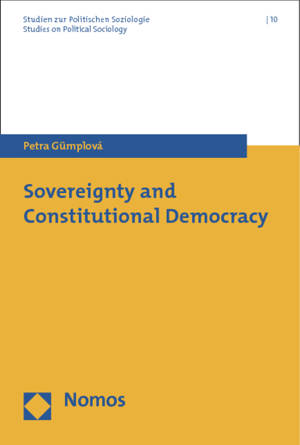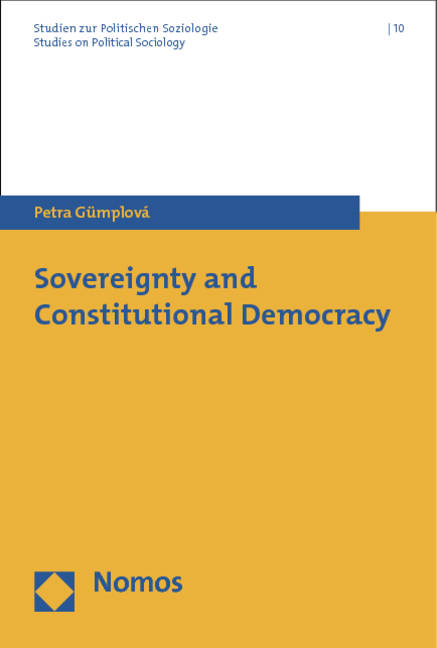
- Afhalen na 1 uur in een winkel met voorraad
- Gratis thuislevering in België vanaf € 30
- Ruim aanbod met 7 miljoen producten
- Afhalen na 1 uur in een winkel met voorraad
- Gratis thuislevering in België vanaf € 30
- Ruim aanbod met 7 miljoen producten
Zoeken
Omschrijving
The aim of this book is to rearticulate the discourse of sovereignty in modern political and legal theory and to outline a democratized model of sovereignty. The underlying aspiration is to show that contemporary tendencies to move beyond the idea of sovereignty are, in fact, based on a misunderstanding of this term. The study traces the roots and nature of this misunderstanding by analyzing the ambiguity of the early modern paradigm of sovereignty. Through a re-reading of the work of Jean Bodin and Thomas Hobbes, the author separates a common misconception that sovereignty amounts to the absolute and unlimited power to make law by command from more plausible elements of the concept, namely the idea of the political supremacy constituted and expressed in legal terms. The second part of the book reflects on the implication of the reconstructed concept of sovereignty for democratic and constitutional theory. Three legal theories centered around the notion of sovereignty are discussed the theory of Hans Kelsen, Carl Schmitt, and J rgen Habermas. It is argued that only Habermas succeeds in overcoming the absolutist paradigm of sovereignty. Using his discursive conception of public autonomy, the author demonstrates the continuing relevance of sovereignty for contemporary liberal democracies.Petra G mplov is an assistant professor of political theory at Justus-Liebig-University in Giessen, Germany. Currently, her research focuses on the problem of emergency and the rule of law in liberal democracy.
Specificaties
Betrokkenen
- Auteur(s):
- Uitgeverij:
Inhoud
- Aantal bladzijden:
- 214
- Taal:
- Engels
- Reeks:
- Reeksnummer:
- nr. 10
Eigenschappen
- Productcode (EAN):
- 9783832960582
- Uitvoering:
- Paperback
- Afmetingen:
- 153 mm x 227 mm
- Gewicht:
- 332 g

Alleen bij Standaard Boekhandel
+ 68 punten op je klantenkaart van Standaard Boekhandel
Beoordelingen
We publiceren alleen reviews die voldoen aan de voorwaarden voor reviews. Bekijk onze voorwaarden voor reviews.







